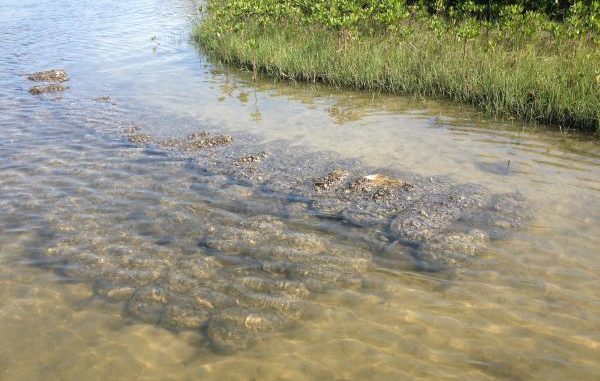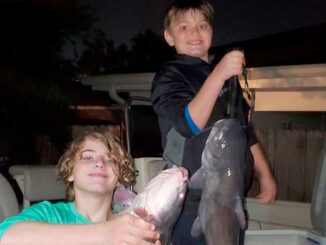
Acme Oyster House, Dragos teams with Coalition to Restore Coastal Louisiana in recycling program.
For generations, oyster lovers have filed into Acme Oyster House and Drago’s to sample the succulent bivalves plucked from Louisiana waters. Now, those landmark restaurants are joining with the Coalition to Restore Coastal Louisiana to help protect Louisiana’s shoreline for future generations. The CRCL is reporting that Acme and Drago’s are the first restaurants to be a part of its Oyster Shell Recycling Program — the newest addition to the non-profit organization’s Community Based Restoration Program. As part of the program, which will be the first of its kind in the state and will begin this fall, restaurants can donate oyster shells to be placed back in coastal waters as reefs, said CRCL Restoration Program Director Hilary Collis.
The oyster-shell reefs will create “sustainable, native oyster habitat that will clean and filter coastal waters, provide habitat for coastal fisheries and stabilize our shoreline,” a CRCL release notes.
The program is funded chiefly by Shell, which contributed $1 million to the effort. Additional support is being provided by the National Oceanic and Atmospheric Administration, Restore America’s Estuaries and the National Fish and Wildlife Foundation.
“From an environmental standpoint, it’s a living shoreline project,” Collis said.
Collection of shells for the recycling effort initially will be limited to the New Orleans and Metairie areas, but that could change soon.
“We have had a lot of interest from other restaurants, so we’re looking to grow,” Collis said. “We’ve also had a lot of interest for governmental agencies and the private sector. So we’re hoping to continue this project for years to come …. As people hear about it, they’re beginning to come to us. We were at the Oyster Festival (on the riverfront in New Orleans,) last weekend; the response has been very positive.”
Collis said the CRCL has been in discussion since 2008 with Acme and Drago’s about being part of an oyster-shell recycling program. She said many oyster-producing states have similar programs, but the “unique culture and coastline of Louisiana” had the Bayou State lagging behind in the implementation of such a venture.
Now, a curing site in Buras has been procured where shells will be bleached by the sun to kill any bacteria that might be present. That curative process will take six months. A waste disposal company that has yet to be contracted will pick up the shells from participating restaurants and deliver them to the curing facility. A program coordinator will be hired, and will be responsible for overseeing the program’s expansion.
“It’s quite an endeavor to get the shells from the restaurants down to Buras,” Collis said. “We have to maximize the stops made by the disposal company. (The Louisiana Department of Wildlife and Fisheries) studied this and found it wasn’t cost effective for them.
“I think the reason that it’s working now is there’s a large amount of capital built up at the beginning. Plus, we’re a non-profit.”
Collis said her group is working with the LDWF to outline potential areas where the shells would be best utilized. She said the most likely spots will be in Southeast Louisiana near Buras simply because of the proximity of the curing site to areas in need.
Shells will be used on oyster beds in public seed areas and in coastal restoration projects.
With approximately a third of the nation’s oysters coming from Louisiana waters, there certainly is room to expand the shell recycling plan, Collis said. The oyster industry is estimated to have an economic impact of more than $300 million on the state.
“We’re very excited about this,” Collis said. “It’s a ‘New to Louisiana’ kind of restoration project. It’s a good thing.”
Click here for more information on the CRCL and its programs.
